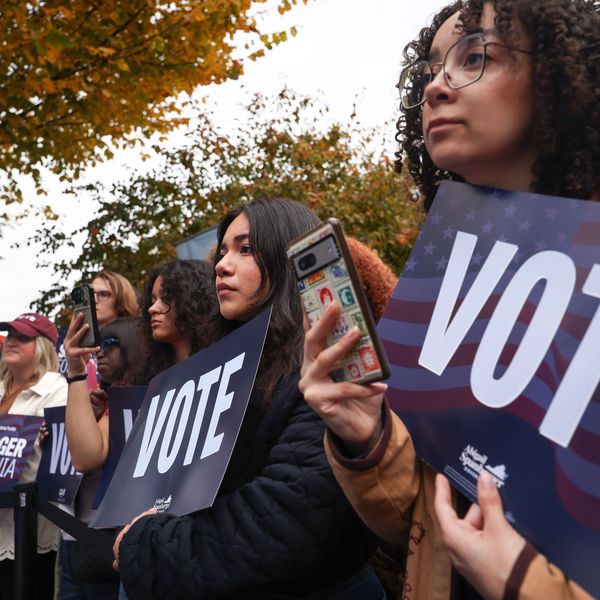To listen to some pundits, the election is pretty much over already. The Democrats, if you missed it, lost big time. The Republicans are back; Obama is effectively neutered. All we're waiting for now is someone to cast and count those damn votes.
To
some extent, this is true. Thanks to early voting, for many people the
election really is over. In the closely fought race in Nevada, more than
half the electorate has probably voted already. In Washington state,
another close one where the majority of votes is mailed in, most have
already had their say. Across the country, just under a third of likely voters have voted, according to the US Elections Project website.
But
if the tallies tell us that the race, for many, is over, they do not
make the final result much clearer - suggesting Tuesday night might
provide a far more patchy, regionalised and uneven picture than the
national Republican tidal wave that has been predicted. Indeed, with
less than 24 hours before the polls close, what remains of this election
is shaping up to be a battle between Republican enthusiasm and
Democratic organisation.
The Republican base, it has been widely
noted, is far more fired up about this election than Democrats, and so
far more likely to turn out. This is why, even though Democrats do not
fair miserably when pollsters ask registered voters, they collapse when
those who are registered are probed about whether they will actually
turn up. That said, no matter how enthusiastic you are about your
candidate or party, you only get one vote.
Meanwhile, the Democrats have in place a formidable "get out the vote" machine
that is largely still in place from 2008. Among the unions and other
surrogates, they also have an impressive number of footsoldiers to knock
on doors and ferry voters to and from the polls. They are hoping that
what they lack in enthusiasm, they can make up for in effort. Still, no
matter how well organised you are, you can't get people to support a
candidate or party they don't like.
These dichotomies are playing
out differently in different places. In Illinois, for example, where
both the Senate and gubernatorial races are close, Democrats are cock-a-hoop over the numbers they have managed to turn out. In Nevada, Harry Reid's operation has blunted the Republican surge, leaving him in the game against Sharron Angle - but barely. In Florida, the Republicans have been wiping the floor with the Democrats.
All
of this explains the extreme volatility in the latest and last polls,
which range from Republicans up 15 points among likely voters from
Gallup, to Democrats up 3 points from Newsweek. In between, Republicans
are +13 with Fox, +10 with CNN, +9 with Rasmussen, +8 with YouGov, +6
with CBS/New York Times, Pew and NBC/Wall Street Journal, +5 with
Politico, +4 with ABC/Washington Post, +3 with Bloomberg and tied with
Marist.
This probably won't make a huge amount of difference to
the final outcome regarding the Senate. But in the House, this range
could be the difference between the Democrats holding on or suffering a total rout.
Now, most commentators are going with sizeable - and possibly seismic -
Republican gains, most settling on somewhere between 50 and 60 seats. I
don't doubt that's the most likely scenario. But there is also a
possibility, just as in the UK where the Liberal surge ended with the
party taking fewer seats, that the election we think we've been watching is quite different from the one that is actually taking place.
This
is not wishful thinking. Having been raised on three Tory victories in
the UK (I didn't stay up for the first one, in 1979), I know that
self-delusion is ultimately far more painful than realistic appraisal.
But this does feel like an election where the facts available may speak
for themselves, but as yet, they are speaking in tongues and no reliable
interpreter is at hand.
"Tuesday's probably going to be a really good night for Republicans," concludes the New York Times' psephologist, Nate Silver.
"But we really don't have a very good idea of exactly how good - it's
probably time to embrace that conclusion. This is a really strange
election, or at least one that pollsters are having an awfully difficult
time getting a handle on. To claim you can predict Republican gains
within a range of 5 or 10 seats isn't science - it's superstition."


